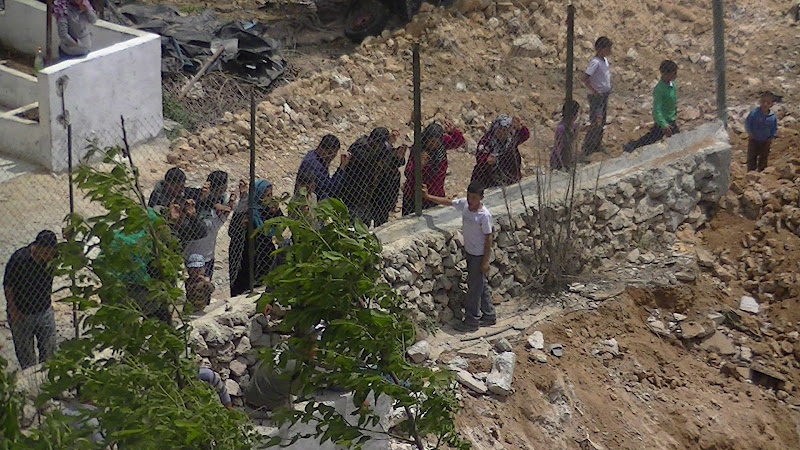Tag: Water
-
Thirsting for Justice Campaign Teach-in for Palestinian water rights World Water Day – 22 March 2013
19 February| Thirsting for Justice On World Water Day show your support for the Palestinian struggle for water justice, organize a teach-in to learn the facts about the context and take action in support of this basic human right. REGISTER NOW! The Thirsting for Justice Campaign calls on supporters worldwide to observe World Water Day…
-
Jordan Valley: Palestinian family’s water confiscated, internationals arrested
By Rosa Andersson and Amina Simonsson 25 June 2012 | International Solidarity Movement, West Bank On Thursday, June 21, Israeli forces confiscated a water tank from a Bedouin Palestinian family in the Jordan Valley, leaving them with no access to water. Three Swedish women were arrested for standing in solidarity with Palestinian women and children…
-
Another water cistern demolished, another violation of Human Rights
by Joseph 3 May 2012 | International Solidarity Movement, West Bank On Wednesday 2nd May 2012, in the town of Al-Baqr, the Israeli occupation forces destroyed yet another water cistern. The water cistern measuring 16 metres in width and length, and 8 metres in height was used to irrigate approximately 40 to 50 dunams of…

